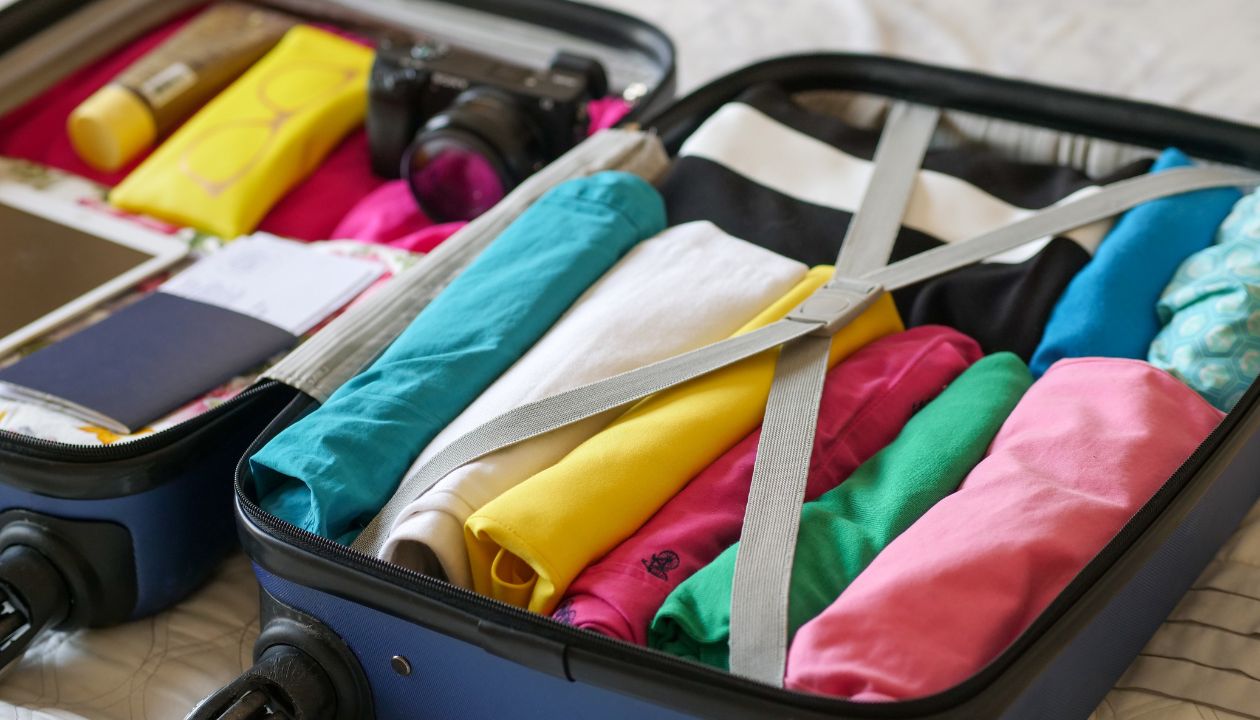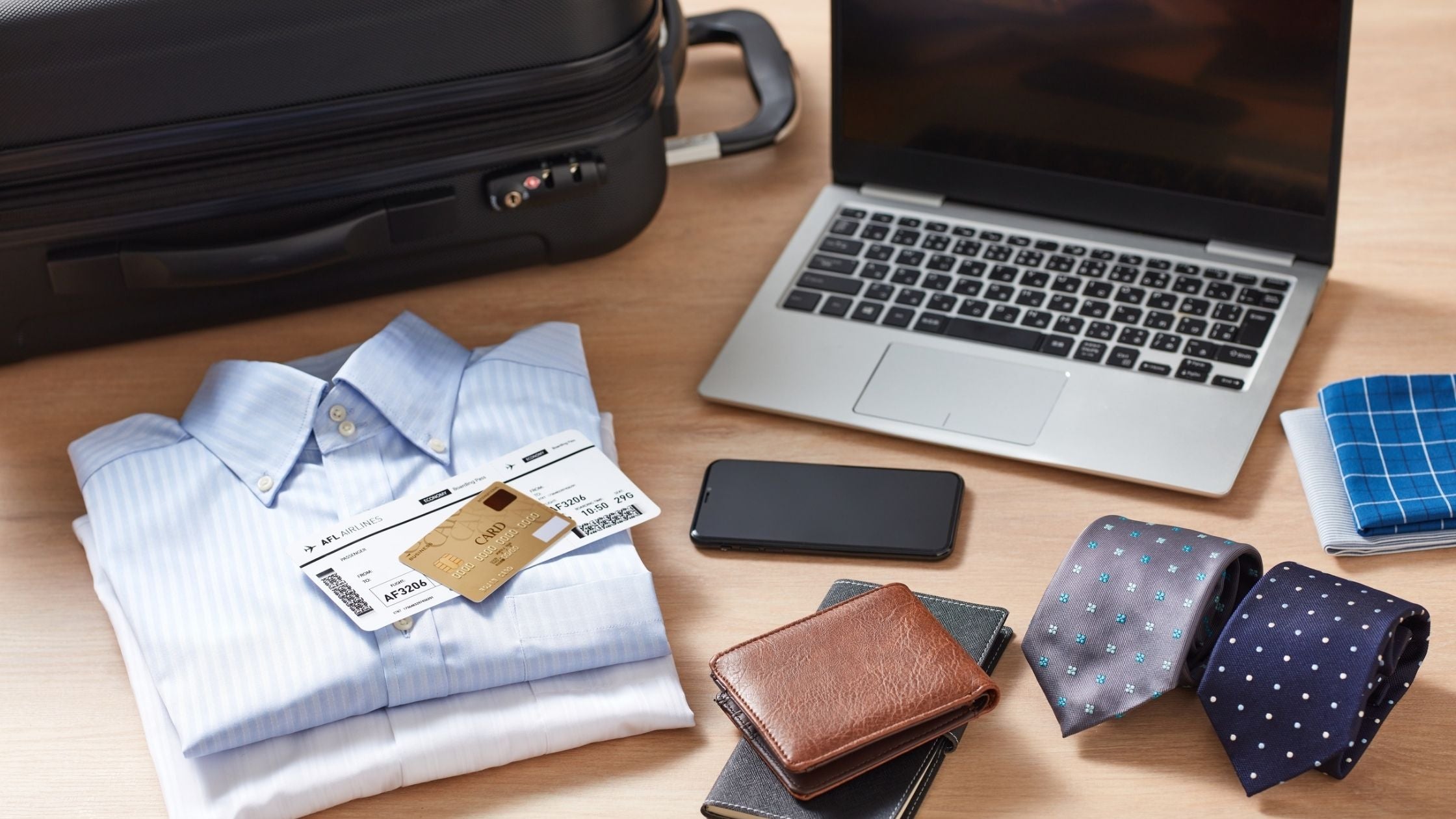
Sustainable Packing Hacks: How to Travel Light and Eco-Conscious
Introduction: Why What You Pack Matters
We live in an age where wanderlust is deeply woven into our lives. But the freedom to travel comes with a growing environmental cost.

From the moment you zip up your suitcase to the time you return home, every choice you make as a traveller leaves a trail—sometimes visible, often invisible. Overpacking doesn’t just hurt your shoulders and your wallet; it hurts the planet too.
So what if we could pack our bags in a way that made us feel good and do good?
That’s what sustainable packing is about—reducing waste, travelling lighter, and making conscious choices that preserve the joy of travel without stealing from future generations.
The Hidden Footprint of Overpacking
Let’s look at the data for a moment:
-
-
Every extra 10 kg of luggage on a flight emits roughly 20–30 kg more CO₂. Multiply that across thousands of flights daily, and the numbers become staggering.
-
91% of plastic waste isn’t recycled, including those cute little hotel shampoo bottles.
-
Over 5 billion toothbrushes are thrown away every year—most of them plastic, and most from travel kits.
-
Most people don’t use 25–40% of what they pack on vacation.
-
The math is simple. The more we carry, the more we consume. The more we consume, the more we waste. The good news? Sustainable packing is not only possible—it’s actually easier, cheaper, and more stylish.
Step 1: Start With the Right Luggage
Your suitcase is your travel home. Make it eco-intelligent.
✅ Choose Sustainable Materials:
Opt for luggage made from: The math is simple. The more we carry, the more we consume. The more we consume, the more we waste. The good news? Sustainable packing is not only possible—it’s actually easier, cheaper, and more stylish.
-
Recycled PET (rPET) from used plastic bottles
-
Upcycled car parts (like Koora’s use of recycled headlights)
-
Natural fabrics like organic cotton, hemp, or jute (for duffels or backpacks)
Avoid virgin plastics, faux leather, or polyurethane linings that crack, wear out fast, and clog landfills.
✅ Durability Over Trend:
A suitcase isn’t a seasonal purchase. Invest in something that lasts 10+ years, not just a few trips. Every broken handle or torn zipper replaced means one less bag ending up in a dump.
✅ Multipurpose Design:
Choose modular suitcases with:
-
Expandable compartments
-
Built-in USB chargers (preferably solar-powered)
-
Removable laundry bags or shoe compartments
Step 2: Pack with Intention, Not Anxiety
Most of us pack out of fear—what if it rains? What if I go to a fancy restaurant? What if I run out of clean socks?
Flip that mindset.
Ask instead:
"What do I really need to feel prepared, not overwhelmed?"
Try the 10-10-10 Formula:
-
10 items of clothing (tops, bottoms, one dress/jacket)
-
10 essentials (toiletries, charger, book, etc.)
-
10 “extras” (accessories, reusable items, travel tools)
Use the rule of threes for clothing:
-
3 tops
-
3 bottoms
-
3 sets of underwear
-
1 outer layer (jacket or shawl)
And remember—laundry is your best friend. Most places have a washing machine, or you can do a quick rinse-and-wear method
Step 3: Master the Art of Eco Swaps
Every traditional travel item has a sustainable alternative. The trick is knowing which ones to swap and which to skip.
|
Common Travel Item |
Eco-Friendly Alternative |
|
Mini plastic shampoos |
Solid shampoo/conditioner bars |
|
Ziplock bags |
Compostable pouches or cloth organizers |
|
Disposable cutlery |
Bamboo or stainless steel set |
|
Plastic toothbrush |
Bamboo or cornstarch toothbrush |
|
Wet wipes |
Reusable makeup cloths or muslin |
|
Plastic laundry bag |
Foldable organic cotton bag |
|
Bottled water |
Collapsible or stainless water bottle |
|
Hotel slippers |
Reusable travel flip-flops |
You’re not just reducing plastic—you’re freeing up space and avoiding leaks/spills in your bag.
Step 4: Go Fabric-First (and Fabric-Smart)
The clothes you pack play a major role in sustainability.
Avoid:
-
Polyester, acrylic, and nylon (non-biodegradable, shed microplastics)
-
Fast fashion items that lose shape or fade in 2–3 washes
Choose:
-
Merino wool (odor-resistant, perfect for repeat wear)
-
Tencel or bamboo (breathable, soft, planet-friendly)
-
Recycled polyester (only from credible suppliers like Global Recycled Standard)
-
Organic cotton or hemp (durable and biodegradable)
Bonus Tip:
Look for multi-use items:
-
A scarf that doubles as a sarong or picnic blanket
-
Leggings that work as yoga pants, sleepwear, or casual daywear
-
Reversible tops and dual-function jackets
This is the heart of capsule packing—maximum function, minimal items.
Step 5: Pack It Like a Pro (and Like an Earth Lover)
Packing light isn’t just about choosing the right items—it’s also about how you fit them in.
Best Practices:
-
Use packing cubes made from recycled fabric for organisation.
-
Roll clothes instead of folding to save space.
-
Bundle bulky items like jackets or sweaters at the centre of your bag.
-
Stuff small items into shoes (socks, belts, cables).
-
Carry tech, chargers, and important documents in your personal item (backpack or tote).
Less clutter = less stress = more focus on the experience.
Step 6: Mind the Toiletries Trap
Toiletries are the biggest culprits of unnecessary waste.
Sustainable Toiletry Kit Must-Haves:
-
Solid shampoo, conditioner, and face wash bars
-
Refillable bottles (100 ml max) with natural body wash
-
Bamboo toothbrush and chewable toothpaste tabs
-
Menstrual cup or reusable cloth pads (for women travellers)
-
Coconut oil (can be used as moisturizer, lip balm, shaving oil)
Remember: go solid wherever you can—it's TSA-approved, leak-free, and lasts longer.
Step 7: Stay Low-Waste on the Go
Being eco-conscious doesn’t end after packing—it continues throughout your trip.
Do’s:
-
Refill water bottles at filtered stations.
-
Eat at local, zero-waste, or farm-to-table restaurants
-
Avoid printed tickets; use mobile boarding passes
-
Say no to plastic straws, bags, or hotel freebies
-
Take only the maps, brochures, or guides you’ll use
Don'ts:
-
Leave behind partially used toiletries at the hotel
-
Buy travel-size items that can't be reused
-
Throw recyclable waste in the trash due to laziness
Step 8: Travel Tech with a Green Mind
Even your gadgets can be part of your sustainable toolkit.
Eco-Friendly Travel Tech Ideas:
-
Solar-powered power banks
-
Digital note-taking apps (no paper notebooks)
-
Cloud-based storage (instead of USBs or hard drives)
-
Noise-canceling headphones to avoid buying earbuds on every trip
And if you carry any battery-powered device, use rechargeable batteries and pack a small portable charger.
Bonus: What About Kids and Families? Travelling
Travelling sustainably with kids isn’t as hard as it sounds.
Some quick wins:
-
Carry washable silicone bibs, snack bags, and collapsable bowls.
-
Use washable diapers or biodegradable disposables
-
Let kids pack their own minimalist kit—it teaches responsibility and reduces overpacking
It’s also the perfect opportunity to plant the seeds of conscious travel early.
The Final Word: Choose Progress, Not Perfection
You don’t need to get it all right to make a difference.
You just need to start—one trip, one bag, one better choice at a time.
Sustainable packing isn’t about sacrifice—it’s about intentionality. It’s about being proud of what’s in your suitcase because it reflects what’s in your heart.
So the next time you travel, travel lighter. Travel smarter. Travel in a way that the Earth would thank you for—if she could.
Want help packing sustainably?
Explore Koora’s eco-luxe luggage—made from recycled materials, built to last, and designed to travel light with style.
Because your luggage should carry your values—not just your clothes.



Leave a comment
This site is protected by hCaptcha and the hCaptcha Privacy Policy and Terms of Service apply.